“Emergency” shelters set up
By Jeff Gross
Last Friday, central Kentucky began playing host to “the world,” as we’ve been repeatedly told. “Company’s coming” has been the refrain and late last week Mayor Newberry sent an email telling residents to “sweep the front porch” for our guests: “When we have company at our house, one of the last things we do is sweep off the front porch so our guests have a good first impression. Now is time for each of us to think of the few last minute things we can do to make sure Lexington’s guests have a good first impression.”
Evidently, one of the “last minute things” has been consideration for the homeless in downtown.
Until October 10, downtown streets will be closed in the evening, filling with festival-goers for live music and medal ceremonies. Normal patterns of downtown life will be suspended, especially for those who live on the streets and in Phoenix Park.
Five Years of Planning for Almost Everything
It was announced on December 6, 2005, that Kentucky would be hosting the games, and the nearly five years since have witnessed a number of infrastructure improvement projects as the region has prepared to host the games. Traffic patterns and transportation routes have been carefully planned. Free shuttle routes announced. Entertainment scheduled. Lasting improvements to our community, like the Legacy Trail, have been planned and completed. Details have been worked out on every level, in an attempt to assure a safe and comfortable visit for central Kentucky’s human and equine guests.
An August 1 Lexington Herald-Leader story outlined the estimated cost of the games for Kentucky. Their “analysis found that more than $107 million in state, local and federal money has been spent on improvements at the Kentucky Horse Park and other infrastructure projects specifically for the Games. An additional $151 million is going to projects that already had been planned—some for decades—but were expedited so they’d be finished in time for the Games.”
The state has gambled its economic future on the success of the games, making the WEG a prioritized investment at a time when education, healthcare, and social services have had to take significant cuts in funding.
In the midst of all the planning, however, almost nobody stopped to think about the impact on Lexington’s homeless. As the city has worked to ensure the enjoyment and safety of WEG’s shareholders and stakeholders, the homeless have been left out. To Lexington’s credit, the city has not done what Atlanta did in preparation for the 1996 Olympics, when they passed stricter loitering and panhandling ordinances and, according to advocacy groups and a number of people on the streets, started making strategic sweeps, arresting homeless in the weeks leading up the games. The Lexington Police Department insists that no efforts will be made to harass or round up homeless persons during the games. As of this writing, this promise from the local police seems to hold true.
Still, during the games and the corresponding Spotlight Lexington Festival, Phoenix Park and surrounding downtown areas will be overrun with police and guests, as the main Spotlight Lexington Festival stage is in front of the district courthouse. Vendors will be set up in Phoenix Park and in the temporary vendor tent-city on the undeveloped CentrePointe plot. Streets will be closed and traffic rerouted, making it impossible for volunteers to feed the homeless in Phoenix Park.
An “Emergency” Situation
The Street Voice Council (SVC), an advocacy group made up of men and women who are experiencing or have formerly experienced homelessness, realized that the games would present an emergency for their brothers and sisters on the streets.
On Tuesday, September 14, the SVC announced that during the games temporary shelters will be set up to house the local homeless. Central Christian Church and the Catholic Action Center have teamed together to offer additional shelter space. The Central Christian Church shelter at the corner of Martin Luther King Boulevard and Corral Street will be open nightly; the Catholic Action Center at Fifth Street and Chesnutt Street will be open 24 hours a day to handle overflow needs.
When the Herald-Leader covered the SVC’s announcement on September 15, their headline declared, “Emergency shelters for homeless will open during WEG.” The headline begs the question: whose emergency is it? Why is it an emergency?
First, before I delve into the rhetoric of “emergency shelters,” I should note that “emergency shelters,” as a term, designates that the shelter will not be set up for a long period, which means that it does not have to go through all of the inspections and permitting necessary for a permanent shelter. The emergency shelter still must meet certain fire code and building safety regulations. Typically, such shelters are set up in response to natural disasters and other public emergencies; in Lexington, for example, temporary shelters were set up in 2005 for people displaced by Hurricane Katrina. The designation of these shelters as emergency shelters actually helped to ensure that they could be open in time for the games.
My problem is not with the shelters. For those experiencing homelessness in Lexington, these temporary shelters will be helpful. They provide a safe retreat from the downtown area that will be turned into a festival site for two-and-a-half weeks. Individuals struggling with alcoholism will have the opportunity to be away from the festival scene, where open container laws will be temporarily suspended, beer in abundance, and temptation high.
At the shelters, volunteers will be on hand to discuss social services available to those struggling with homelessness. In an informational packet aimed at shelter volunteers, the Catholic Action Center describes goals for the shelter: “During the time of the Shelter on MLK/Corral, we hope to connect with men and women who may be eligible for programs (like From the Streets to a Home) or other resources to give them a hand up; to understand their stories and give them non-judgmental care and compassion . . . The ultimate goal is that these normally isolated men and women will develop relationships with the volunteers and begin the journey to find a way home.” Consequently, those who sleep on Lexington’s streets, and who may be wary of social agencies, can learn about services that they may not know they are eligible for. Paragon Medical Group will be on hand to provide medical assistance, and mental health and social work professionals will be available for consultation and referral.
An “Emergency” Caused by Neglect
Certainly, the temporary shelters will help the homeless, but let’s get back to the idea of this being an “emergency.” Exact long-term planning cannot be put in place for a hurricane or natural disaster, which could hit at any time, but Lexington has had nearly five years to plan for the World Equestrian Games. The shelters, announced this week, became an emergency only because the city neglected to think about all of its stakeholders.
An enormous amount of tax money — money that should be directed towards improving the state’s services for its citizens — is being used to support an event that, in the end, will impact very few of our city’s residents. Dressage and stadium jumping are not the same as thoroughbred racing, and anyone who has ever been to the Rolex 3-Day event at the Horse Park knows that these equestrian events, due to the associated costs and training times, are available only to a select few. Local and state government and corporate sponsors, led by Alltech’s Pearse Lyons, have worked to ensure that Lexington will appeal to those who enjoy such sports. If you want to get an idea of how small this event is in the national perspective, look for coverage in national newspapers or, better yet, call five out-of-state friends to see how many of them have heard of the WEG.
At the other end of the social spectrum, the Catholic Action Center and Central Christian Church are assuming the role of sheltering the homeless during the games. As of right now, the Catholic Action Center is also assuming the costs of the sheltering operations; these costs include security for the shelters. While shelter organizers may have hoped that the local government or WEG’s corporate sponsors would help foot the bill for food and security at the emergency shelters, nobody offered anything. The corporate entities making the games possible are not helping with the care of Lexington’s most at-risk citizens who are being displaced by the festivities. The shelters are only made possible by the donations of private citizens.
Since the shelters opened on Wednesday, September 22, which was when festival setup began downtown, the shelters have seen an increase in combined guests each night. On Friday, September 24, the shelter at MLK & Corral housed 36 guests, and the Catholic Action Center housed an additional eight.
The numbers show the shelters are necessary, but the shelters might also provide the city with a win-win situation during the games. On one hand, they are released from their own failure to come up with a plan for the homeless, and they might be able to avoid the embarrassment of sweeping the park of the homeless.
The Catholic Action Center estimates the cost of the shelters for the 18 nights they will be open at about $10,000, most of which will go to security costs. Many goods being used have been donated. If they continue to average around 50 people a night at the shelters, that’s a cost of about $10 per person per night. Saturday night’s opening ceremony at the Kentucky Horse Park was estimated to cost around $1 million, so for a hundredth of that cost, the event sponsors could have sponsored the emergency shelters for the entire event.
The money was there, but the priority was not.
When the Real Emergency Begins
It will be months or even years before we know if Kentucky’s gamble on the World Equestrian Games pays off. For the sake of all of the stakeholders in the Commonwealth, I hope it does. The reality, played out in other states with similar events, makes me worry that it won’t.
For five years, our city’s vision has been nearly singularly focused on the WEG, which will be over on October 10. Perhaps the end of the games will bring a renewed focus on the real stakeholders in the state and city’s future. Those experiencing homelessness in our community, and those who are at risk of homelessness with increasing utility costs on the way, can only hope that planning for the future considers them. If WEG preparation is representative of how our state and local governments work, then our priorities seem to be skewed.
Public monies are being used to help put on a superfluous event, and private monies are needed to provide basic living conditions for our most vulnerable citizens.
Those individuals staying in shelters during the games will end up back on the streets, and that’s when the real emergency begins. Will our community work to find a long-term solution for its most vulnerable stakeholders? Ideas already exist. If you talk to people working on a plan for an Affordable Housing Trust Fund, you might be surprised to hear that these plans offer a surer economic bet than the games that we have invested so heavily in for the last five years.

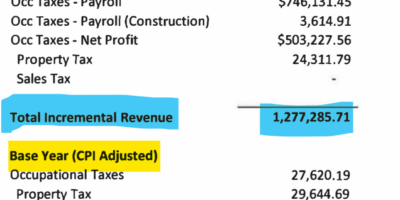
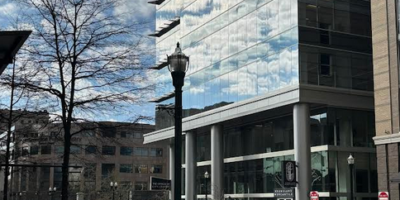
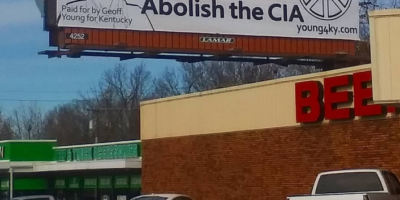
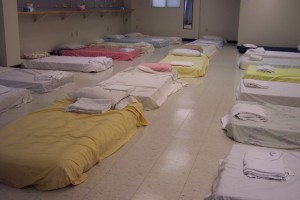
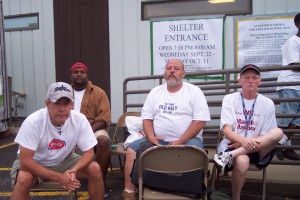
Leave a Reply